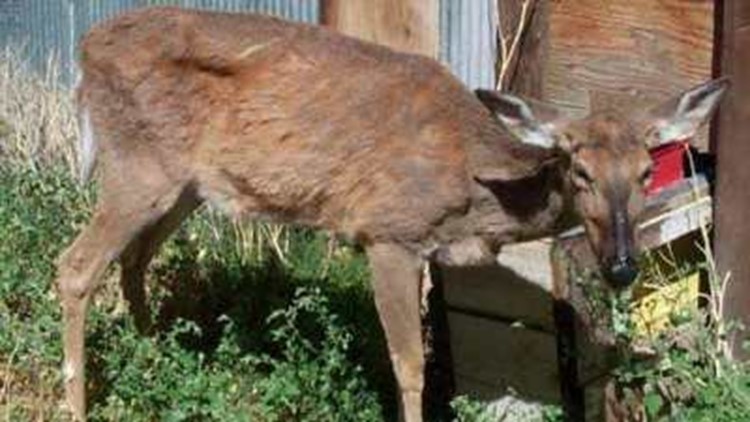HARRISBURG — A deer that originated from a Lancaster County breeding farm now under quarantine tested positive for Chronic Wasting Disease after being harvested in a Wisconsin hunting preserve, according to the Pennsylvania Department of Agriculture.
DNA testing conducted Tuesday confirmed that the deer was born and raised at a West Cocalico Township breeding farm. Another deer from the same farm tested positive for Chronic Wasting Disease earlier this month, the Pennsylvania Department of Agriculture says. Neither deer showed signs of the disease prior to its death, the department says.
The farm has been quarantined since Dec. 15, 2017, when Wisconsin’s stae veterinarian notified the PA Dept. of Agriculture of a potential traceback. The deer’s identity was confirmed via DNA testing due to the absence of official identification tags for the deer.
The department, along with the United States Department of Agriculture, is currently evaluating the farm in cooperation with the herd owner to establish a Herd Management Plan to mitigate the threat of this disease spreading.
The plan, which all three parties sign, may include indemnification of the herd by the USDA or a continuous quarantine with mandatory testing. A quarantine would be extended five years every time a positive is detected.
CWD attacks the brain of infected deer, elk and moose, producing small lesions that eventually result in death. Animals can get the disease through direct contact with saliva, feces and urine from an infected animal or contaminated environment.
Clinical signs include weight loss, excessive salivation, increased drinking and urination, and abnormal behavior like stumbling, trembling, and depression. Infected deer and elk may also allow unusually close approach by humans or natural predators. The disease is fatal and there is no known treatment or vaccine.
The Centers for Disease Control and Prevention report no strong evidence that humans or livestock can contract CWD.



